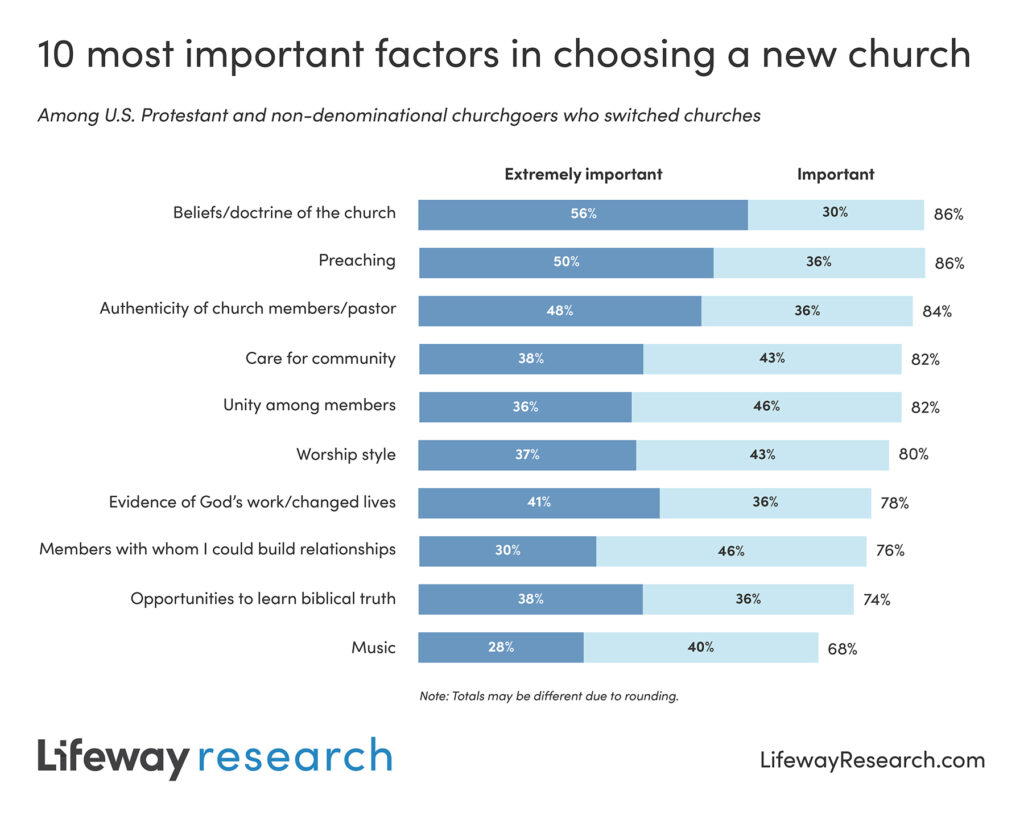Nearly 4 in 5 (79%) of those who have switched churches agree that how the church welcomed visitors positively impacted their decisions to attend regularly, with 49% strongly agreeing and 30% somewhat agreeing. More than 3 in 4 churchgoers who experienced each of the welcoming approaches said it positively impacted their decision to attend regularly.
“Personally welcoming visitors, inviting them to social events and contacting them after the worship service all coincide with better impressions of a church’s welcoming approach than churches that did not do these things,” McConnell said. “You can’t take a week off when it comes to genuinely welcoming newcomers.”
Important factors
For most regular churchgoers who have changed churches, their current church’s beliefs and doctrines (86%) and preaching (86%) were important in their decision to attend that church, with 56% saying its beliefs and doctrines were extremely important and 50% saying the preaching was extremely important.
Although fewer identify these factors as extremely important, at least 4 in 5 churchgoers say factors including the authenticity of church members and pastor (84%), care for community (82%), unity among members (82%) and worship style (80%) are important or extremely important factors.
Many also say the evidence of God’s work and changed lives (78%), building relationships with members (76%), learning biblical truth (74%), music (68%), worship times (68%), location (67%), denomination (64%), opportunities to serve (62%), low pressure to commit (61%), acquaintances among church members (61%) and church members similar to them (59%) were at least important factors in their decision to attend their current church.
Other factors were less important for churchgoers looking for a new church. Less than half (49%) said age-appropriate children’s programs were important or extremely important, and 27% said it was neither important nor unimportant. Many were also neutral (34%) about the importance of the church’s size, while 40% said it was important or extremely important. More than 2 in 5 (42%) churchgoers said little use of religious jargon was neither important nor unimportant to them, and 37% said it was important or extremely important.
Those whose church switch accompanied a residential move were more likely than those whose did not to say location (70% v. 62%), denomination (67% v. 60%) and church members similar to them (62% v. 53%) were important or extremely important factors in choosing their current church.
This article originally appeared here.


